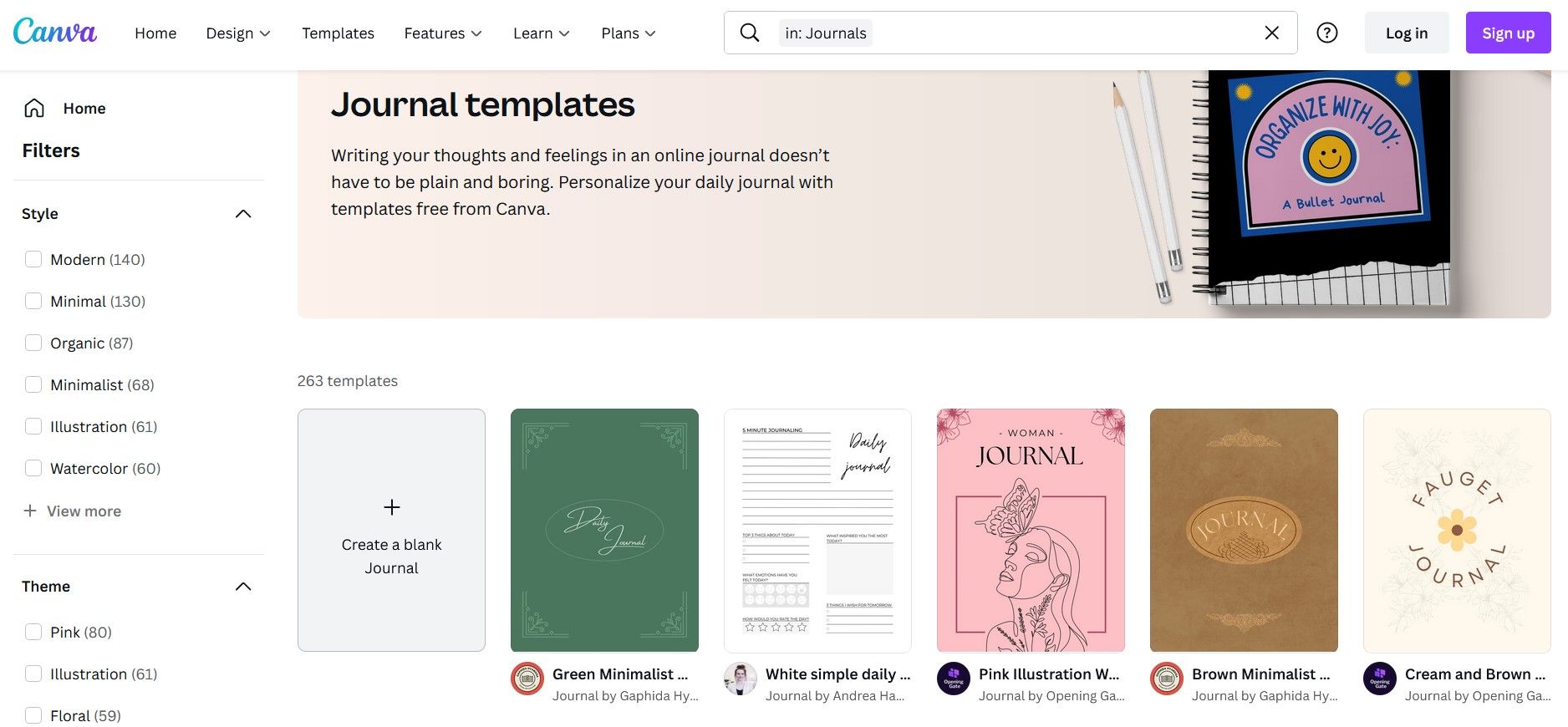There are many ways to take your career to the next level, but the best strategies include good planning. An efficient career journal can help you do that.
Here’s a guide on why a detailed account of your professional experiences is a good idea and how to create a practical and insightful journal. The benefits of this exercise will become clear.
What Is a Career Journal, and Why Make One?
A career journal contains your professional journey so far in as much detail as necessary. It can include previous positions, achievements, preferences, observations, and so on. You keep updating it as you progress.
The goal is to paint a detailed picture of who you are as a person and a professional. This is useful to you, as well as future employers, partners, and other opportunities.
When you go for interviews, for example, consulting your career journal first can remind you of your work history, boost your confidence in your abilities, and help prepare you for various questions.
A journal can also turn into an effective career roadmap, guiding you towards greater goals, while eliminating any problems holding you back.
On a more personal level, a career journal, like any diary, can help you process experiences and emotions. It can improve your workplace performance and relationships, if not help you formulate ideas.
How to Make an Effective Career Journal
Making a career journal isn’t difficult, but it does take thought and organization. At the end of the day, it’s an in-depth plan shaped by your requirements and experiences. Follow these steps to create a journal that perfectly reflects your professional story and can assist your every venture.
1. Pool Your Professional Experiences So far
If you have a resume, LinkedIn profile, or important qualifications, now is a good time to get them out as you might not remember everything about your past. Documents filed away and forgotten could even trigger important memories that would complement your career journal.
Bring everything together and look at what you’ve got in terms of your employment history, education, accomplishments, and professional connections. Every little detail will help you decide how to structure the journal.
2. Choose a Medium for Your Career Journal
A simple notebook is a good way to start planning your professional journal. Just jot down information you gather from your sources above, as well as what tools you’d like to use next.
On that note, digital devices and apps are invaluable to career journals. Part of your research should be into what hardware and software best serve your needs.
Whether you started with a physical notebook or one of the best free note-taking apps for iPads, you’ll need to put all your professional details into the form of a journal, so choose your medium carefully.
What devices do you have at hand or use the most? If you prefer to work on your computer, you could explore Journal, Trello, and other top journaling apps for Windows or macOS.
If you love the versatility of smartphones and tablets, look into ideal software for those platforms, too. You can even narrow down your search to options like the best apps for bullet journaling, which work great on both mobile devices and PCs.
3. Choose a Journaling Structure
The type of tools you’ll need to use largely depends on the layout you want to give your journal. How will you break down the information? Will you put everything into one big document or distribute it across smaller files?
The capabilities of your devices and apps are a factor to consider, as is the career journal’s general structure. There are two popular layouts: a daily, weekly, or monthly account and one organized into prompts.
The first structure is good if you’re just starting your career or have a great memory of your past experiences. A prompt-based journal is better if you already have a career history to speak of. It’s also far more efficient for interviews, since you can have common questions and your detailed answers prepared and memorized long in advance.
For example, your prompts or headings could include things like:
- What Are My Greatest Achievements?
- What Mistakes Were the Most Enlightening?
- What Were the Hardest Workplace Situations, and How Did I Handle Them?
- What Are My Most Important Values?
Whichever structure you choose, each section can contain as much relevant information as you want, but you should organize it in a clear, constructive way.
To help with the process, you’ll find journal templates online for Microsoft Word, Google Docs, and other platforms.
Here are some websites to look through and find templates suitable for work journals:
4. Start Your Career Journal
Once you have a clear plan for your journal, go ahead and fill it in with all insightful details. While at work, make a mental or physical note of important experiences, so you can easily transfer them to your journal—unless you already have it on your phone or computer.
Make sure you don’t just pay attention to events or achievements. It’s vital that you also learn to recognize and assess your thoughts, emotions, and reactions in different situations.
Feeling happy and confident plays a big part in building a successful career, so incorporate this factor in your journal. You can go even further by using top self-confidence apps and actively maintaining your mental health.
5. Write in Your Career Journal Often
An efficient career journal is one you can access quickly and enjoy adding to. This is why planning before writing is important—you can design your journal so that it’s appealing and easy to use.
However, if you achieve this, don’t neglect your journaling. Keep expanding your professional story, for example, by choosing a particular time every day or week to focus on your journal.
If you write regularly and enjoy the process, it will turn into a habit that can benefit your current and future career, as well as your emotional health.
6. Review Your Professional Journey Now and Then
If you’ve been journaling for a long time, it’s worth looking back at your experiences, especially if you’re eyeing a promotion or want to change careers.
Even without a professional goal, reading what you have already written is as important as adding to it frequently. You can tweak details and correct mistakes, while remembering what led you to your current position, good or bad.
And, of course, the more organized your journal is from day one, the simpler it will be to revisit and understand later.
Get Your Career in Order With More Than a Journal
Make a strong career journal, and you’ll have a good foundation to build on, regardless of the path you end up following as a professional.
You can take your management skills further, however, and improve your prospects even more. Look into career roadmaps, job reference organization tools, contact lists, and more to perfect your workflow.



